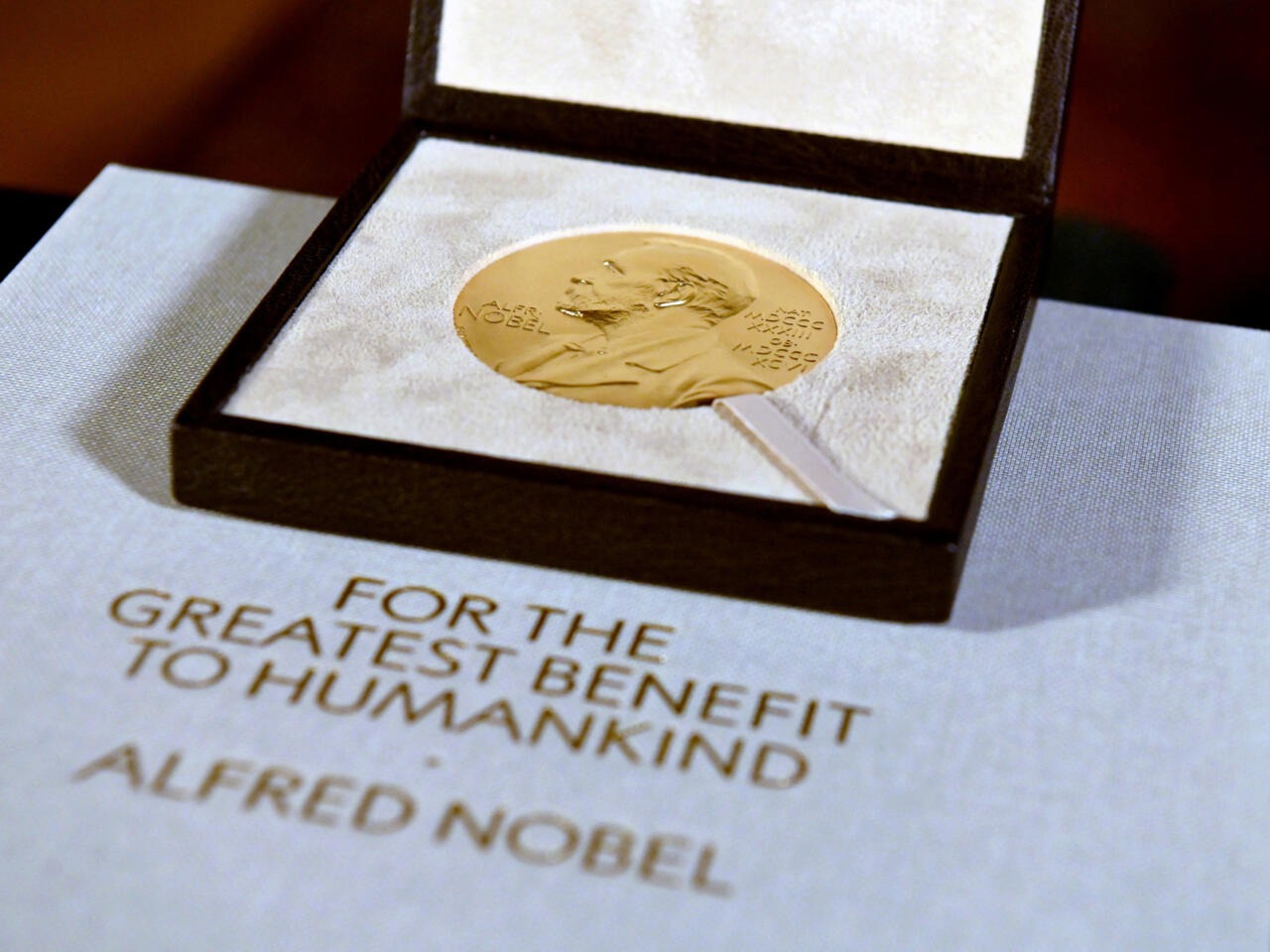We all know about the Nobel Prize, which is awarded for outstanding achievements in such areas as physics, chemistry, physiology, medicine, literature, and economics. It is also awarded for a special contribution to the consolidation of peace.
Alfred Nobel (1833-1896) was a Swedish chemist, engineer, and inventor. On November 27 of 1895, in the Swedish-Norwegian club of Paris, Nobel established a trust designating much of his wealth to establish the Nobel Prize. Since then, the award has been given annually, regardless of the nationality of the candidate.
In this article, we will talk about the Arabs who became Nobel Prize winners.
Anwar Sadat (1918-1981):

- Nobel Prize in peace 1978
- He was an Egyptian politician and military officer who served as the third president of Egypt, from 15 October 1970 until his assassination by fundamentalist army officers on 6 October 1981.
- Sadat was a senior member of the Free Officers who overthrew King Farouk I in the Egyptian Revolution of 1952, and a close confidant of President Gamal Abdel Nasser, under whom he served as Vice President twice and whom he succeeded as president in 1970.
- Anwar Sadat visited the Israeli parliament with a peace treaty plan following the October conflicts, which were battles between Egypt and Israel. This was a significant step towards peace. The Israeli occupation of the Sinai Peninsula was then terminated in 1978 with the signing of the Camp David Agreement by Israeli Prime Minister Menachem Begin and Anwar al-Sadat. Both received the Nobel Peace Prize in the same year.
Naguib Mahfouz (1911-2006):

- Nobel Prize in Literature 1988
- Naguib Mahfouz was an Egyptian writer. He is regarded as one of the first contemporary writers of Arabic Literature to explore themes of existentialism.
- He published 34 novels, over 350 short stories, dozens of movie scripts, and five plays over a 70-year career.
- Many of his works have been made into Egyptian and foreign films.
- An Egyptian icon, Naguib Mahfouz was the first Egyptian to win a Nobel Prize, as well as the first native Arabic-speaking winner.
- He is widely regarded as one of the first Arab authors to begin writing contemporary Arabic literature, and he produced a collection of over 30 novels and 350 short stories.
Ahmed Zewail (1946-2016):

- Nobel Prize in Chemistry 1999
- Ahmed Zewail was an Egyptian-American scientist, known as the “father of femtochemistry“.
- He was awarded the 1999 Nobel Prize in Chemistry for his work on femtochemistry.
- He became the first Egyptian to win a Nobel Prize in a scientific field.
- He was the Linus Pauling Chair, Professor of Chemistry, Professor of Physics, and the director of the Physical Biology Center for Ultrafast Science and Technology at the California Institute of Technology.
- Ahmed Zewail was the first Egyptian to win a Nobel Prize in a scientific field, and he grew up in Alexandria. He received the Nobel Prize in Chemistry for his work on femtochemistry in the 1980s, when he “developed methods for studying chemical reactions in detail, having discovered that by using laser technology to produce flashes of light just a few femtoseconds long, reactions can be mapped”.
- Zewail spent much time in the U.S., having moved there to pursue his PhD at the University of Pennsylvania in Philadelphia, then later working at the University of California, Berkeley, and then at the California Institute of Technology in Pasadena in 1976.
- Ahmad Zeveil received the Nobel Prize in Chemistry “for the study of transition states arising during chemical reactions using femtosecond techniques.”
Mohamed El Baradei (born: 1942):

- Nobel Prize in peace 2005
- Mohamed El Baradei was the Director General of the International Atomic Energy Agency (IAEA), an intergovernmental organisation that is part of the United Nations system.
- He received the Nobel Peace Prize jointly with the IAEA for their efforts “to prevent nuclear energy from being used for military purposes and to ensure that nuclear energy for peaceful purposes is used in the safest possible way”.
- Dr El Baradei has also received many other honours and awards, including the Golden Plate Award from the Academy of Achievement and the Nile Collar, to name a couple.
- He is also currently the only living Egyptian Nobel Prize Winner.
- In 2005, the Nobel Peace Prize was awarded to the IAEA and its head, Egyptian citizen Mohammed El Baradei “for efforts to prevent the use of nuclear energy for military purposes and to ensure its most safe use for peaceful purposes.”
Yasser Arafat (1929-2004):

- Nobel Prize in peace 1994
- Yasser Arafat, the chairman of the Palestinian National Authority and the leader of the Palestine Liberation Organization, shared the 1994 Nobel Peace Prize with Yitzhak Rabin and Shimon Peres “for their efforts to achieve peace in the Middle East.”
- One of the most prestigious awards in the world, it acknowledged the three men’s audacity and bravery in crafting the fundamental agreement on Palestinian self-government as a first step in resolving a protracted conflict.
Tawakkol Karman (born: 1979):

- Nobel Prize in peace 2011
- Journalist Tawakkol Karman is a recipient of the Nobel Prize in human rights activism. Known as “The Mother of the Revolution,” she is the first Arab woman to earn the Nobel Prize and has received recognition for her efforts in fostering a culture of nonviolence throughout the Middle East.
- She organized events and wrote on topics pertaining to governance and injustice, corruption, extremism, terrorism, women’s and girls’ rights, early marriage, malnutrition, illiteracy, poverty, and religious reforms while working under harsh restrictions as a journalist and activist in Yemen.
- Karman participated in the founding of Women Journalists Without Chains in 2005 with the goal of advancing democratic rights and freedom of speech.
- Despite attempts on her life, Karman organized nonviolent demonstrations in Yemen’s capital city of Sana’a during the Arab Spring, which resulted in the resignation of the country’s president, Ali Salehi.
- Karman received the 2011 Nobel Peace Prize in honor of her nonviolent fight for women’s rights and democracy in Yemen.
- She was named one of CNN’s most influential women in the Arab world and one of Foreign Policy Magazine’s Top 100 Global Thinkers.
- She was called a “Torchbearer of the Arab Spring” by TIME Magazine, which also listed her as one of the most rebellious women in history and one of the 100 most significant women of the past century.














Leave a comment